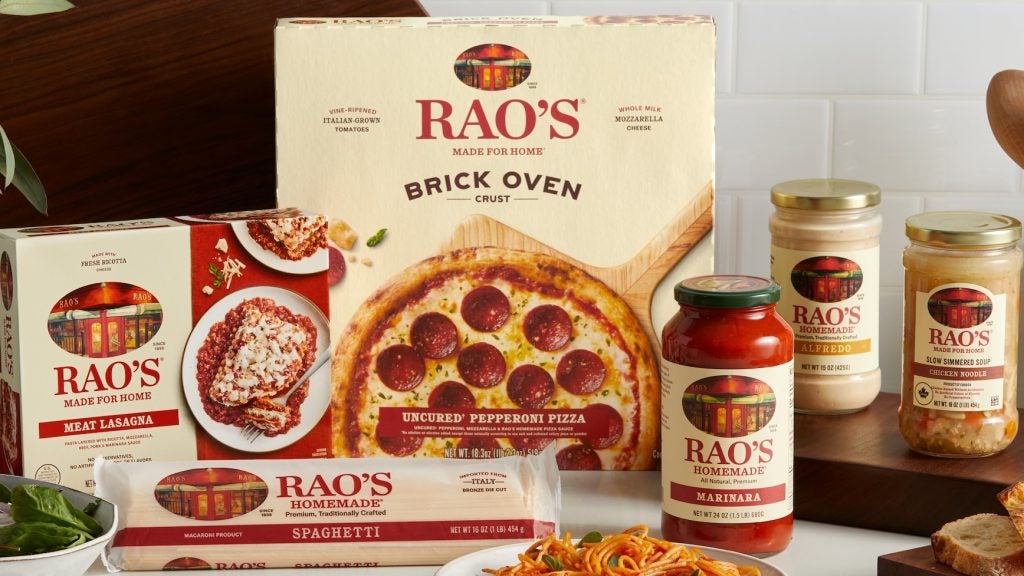Campbell Soup Co. has confirmed the Noosa yogurt business, acquired through its recent purchase of Sovos Brands, will be disposed of.
The wider Sovos Brands business, however, from Rao's Italian pasta sauces to ready meals, soups and frozen pizza, provided a buffer to Campbell's third-quarter organic growth, which was otherwise flat from a year earlier.
When president and CEO Mark Clouse announced the purchase of US-based Sovos Brands in August, he said yogurt would not be “core to our strategy”.
A decision has now been made, although Clouse did not reveal the finer details of a potential buyer of Noosa nor a disposal date or the price that might be expected as he presented the results to 28 April yesterday (5 June).
“The Noosa business has been one of the more positive surprises in the Sovos Brands acquisition. It is an excellent product and brand that continues to perform very well,” Clouse told analysts.
“Even though we have decided to explore strategic alternatives for the business as yogurt's not a strategic category for Campbell's, the business has truly exceeded our expectations.”
Overall, the Sovos Brands portfolio added 200 basis points each to Campbell’s third-quarter organic sales and volume/mix growth on a proforma basis. Otherwise, both delivered a flat result from a year earlier.
The acquired business only contributed roughly seven weeks to the numbers, as the transaction’s closure was delayed until 12 March when an antitrust review was concluded successfully.
Finance chief Carrie Anderson said that over the long term, Sovos Brands own net sales are likely to grow in the mid-single-digit range, with near-term insight for the coming financial year to be provided on the fourth-quarter call.
Analysts at US investment bank Stifel suggested Sovos Brands will contribute 12.5% to Campbell’s overall sales growth in the final quarter of fiscal 2024, with a 28% benefit to the meals and beverages business segment alone.
Campbell reported the division also posted flat organic sales growth for the third quarter, which would otherwise have been up 5% with the Sovos Brands component included, on a proforma basis.
“We continue to expect the Sovos Brands acquisition to be nicely accretive to Campbell's organic revenue, adding over one percentage point to the overall company,” the Stifel analysts wrote in a research note.
To reflect the incorporation of Sovos Brands, Campbell upgraded its full-year guidance yesterday for reported sales to 3-4%, compared to the March outlook for sales to be down 0.5% to up 1.5%.
However, the organic growth guide was tweaked lower – a range of flat to down 1%, versus flat to up 2% previously – although Campbell said the rate is currently “tracking to the mid-point of the updated range”.
Adjusted EBIT was also moved higher, to 6.5% to 7% from the prior estimate of 3-5%, “reflecting the partial year contribution of the acquisition”.
Adjusted earnings per share growth is now seen at 2-3% ($3.07-3.10) versus 3-5% growth ($3.09-3.15).
In other parts of the business, Clouse said meals and beverages saw a “stabilising in-market performance” in the quarter, while snacks “faced some moderate category pressure”, particularly from low- and middle-income consumers.
“We are seeing some modest improvement in the snacking segment in the most recent weeks, with the expectation of more of a full recovery in the first half of fiscal 2025,” he said.
Campbell continues “to normalise pricing and volumes”, Clouse added, noting with respect to the latter that “it is fair to say that the pace of this recovery has varied depending on the specific category and the consumer's income level”.
Input-cost pressures remain, although were down considerably from the levels of the previous fiscal year, Anderson said.
Core inflation was running around the same levels as the first half in the low-single-digit area, compared to 8% in the corresponding period, she said.
“We anticipate core inflation to remain in this range for the balance of fiscal 2024, and we will stay focused in areas of our portfolio with increased input cost, such as tomatoes, olive oil, cocoa, and other areas of persistent inflation, such as labour costs and warehousing costs,” Anderson explained.









